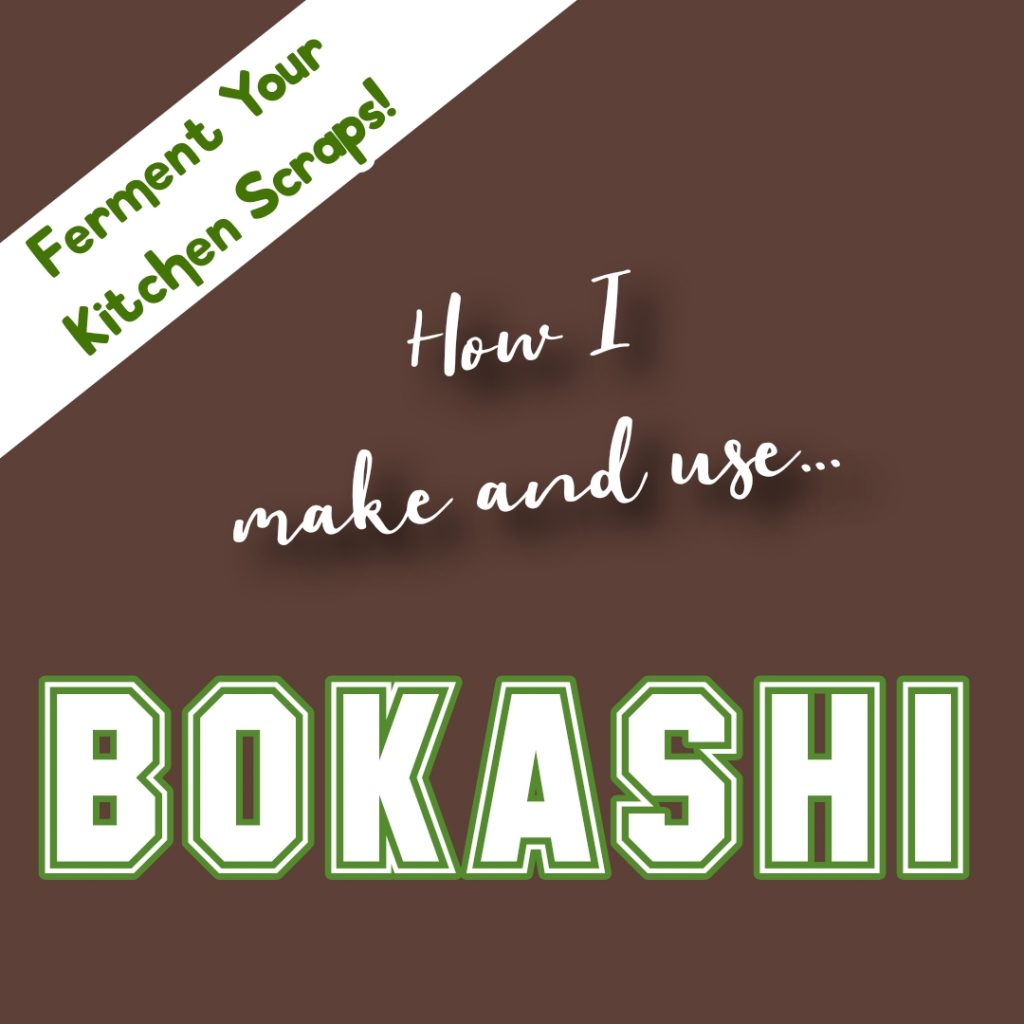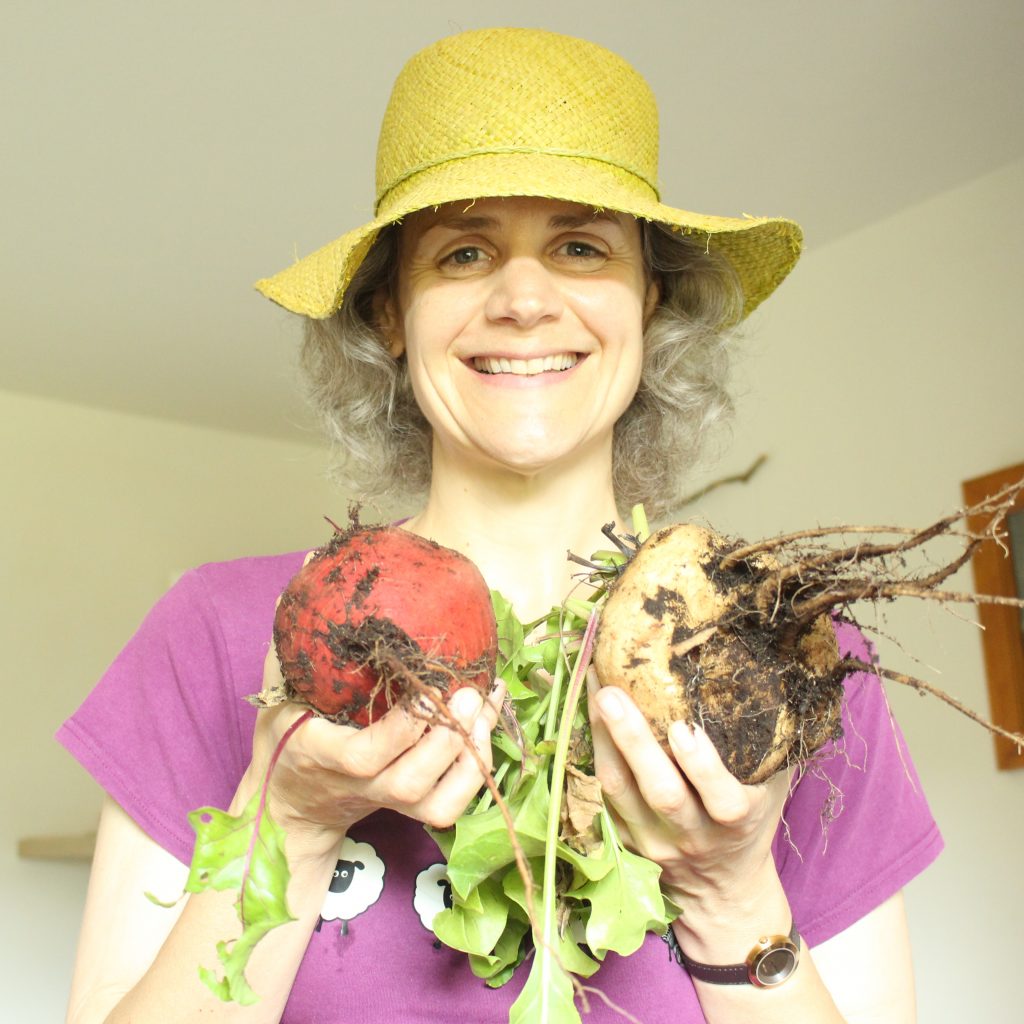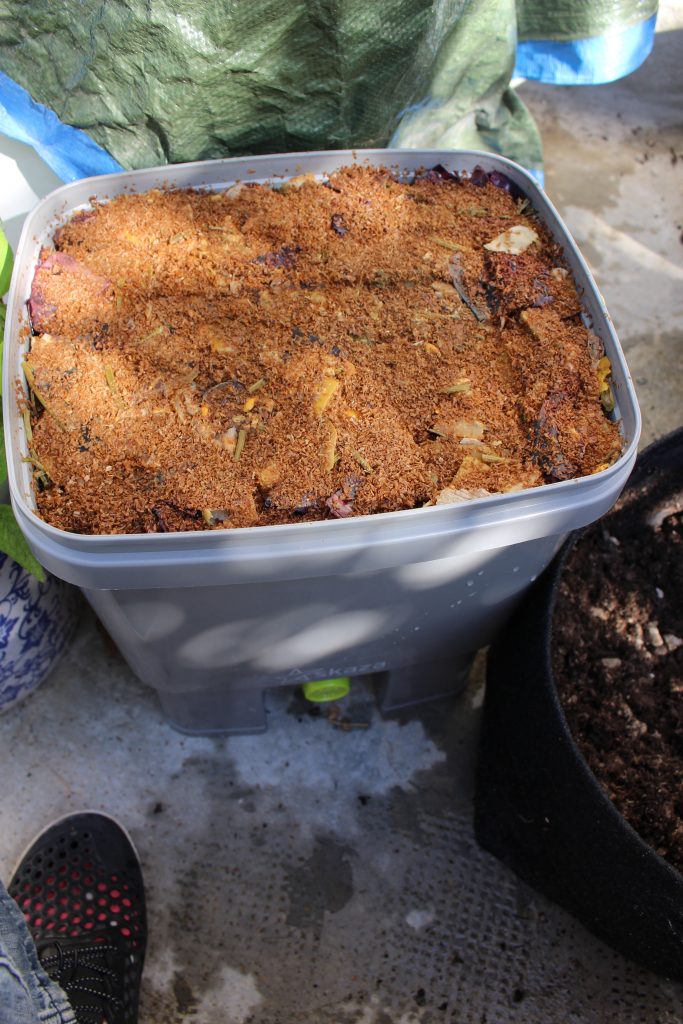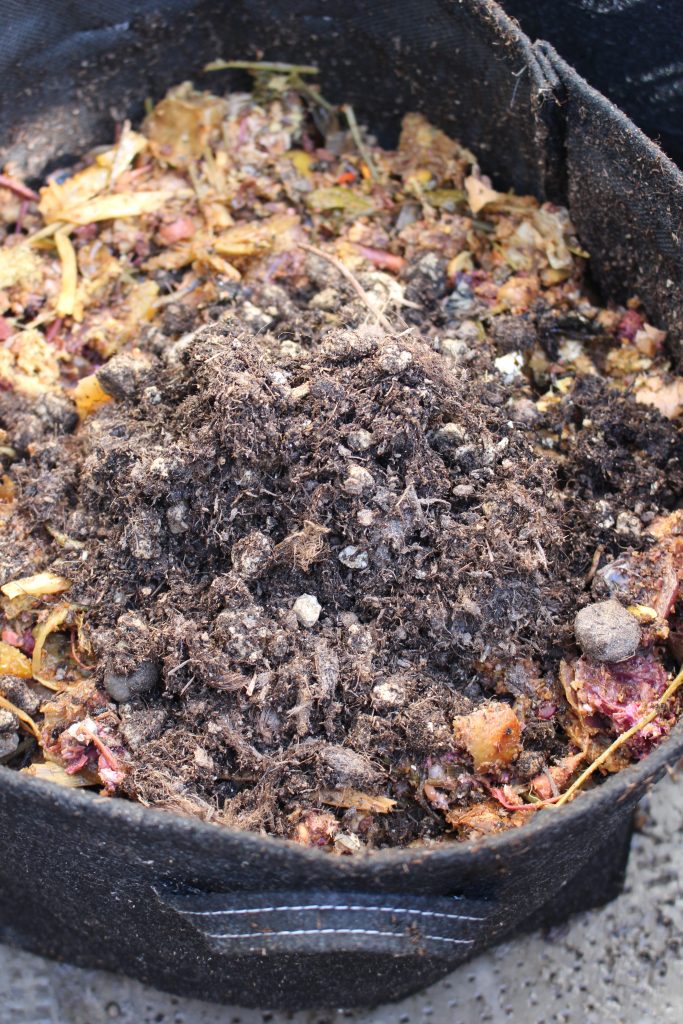This post contains affiliate links. You will receive a discount if you use them and I will receive a small payout.

Think living in an apartment means you can’t compost?
Meet Bokashi: the apartment-friendly, super-quick, odour-free way of fermenting your food waste into compost and compost tea.
I’ve been using this method, which you can do right in your kitchen, in my own tiny apartment for two years and love everything about it.
Here’s why:
- It uses virtually all my kitchen waste
- The process is really quick
- There’s no smell
- I get a ‘compost tea‘ to use on my houseplants or as a drain cleaner
- The compost has super-charged my container-garden vegetables

What is Bokashi?
A method, originally from Japan, of processing food waste into compost using fermentation. This happens in an air-tight environment, over a two-week period. As the fermentation progresses a ‘compost tea’ is produced which can be watered down and used as a plant feed or poured neat down drains to clean them. When the two-week fermentation is complete, the waste is mixed into soil and left for a further two-week period before the now nutrient-dense soil can be planted into.
How it works in practice:
I have a small lidded container for organic waste on my kitchen counter. Whenever I have scraps – peelings, shells, small bones, cheese rinds, tea and coffee grinds, leftovers – I put them into this container.
At the end of the day I empty this container into my Bokashi bin.
I cover these scraps with a layer of Bokashi bran. This bran is inoculated with fungi and bacteria which ‘start’ the fermentation process. Once covered, I push waste down with the flattening tool included in my Bokashi kit.
I continue with this process daily. A few days after I’ve started, I will begin to drain off the ‘compost tea’ (through a spigot designed into the Bokashi bucket) and use it diluted 1:200 to feed my plants or neat to clean my drains.
Once my Bokashi bucket is full, I’ll put it to one side for two-weeks, continuing to drain the tea every day or two.
I have a two-bucket set, so I continue collecting kitchen waste on my counter top and begin filling another (my second) Bokashi bucket with waste and bran and draining the ‘compost tea’ regularly.

When this second bucket is full, I set this aside for it’s two-week fermentation and return my attention to bucket number one, which, having completed its own two-week fermentation, is ready to be dug into the existing soil in the pots I have in my container-garden. I dig large holes in the soil in these containers and fill them with partially broken-down bokashi. I mix the soil well with the compost and cover the result in another layer of soil.

I leave this soil-mixed Bokashi for at least two weeks before planting into it.
I return the now empty first bucket to my kitchen and start the waste collection/fermentation cycle again with it.
Once the second bucket has completed its two-week fermentation, I will put this into my containers in the same way as I did the first bucket-load.
And the cycle continues…
Do remember:
- You can leave the Bokashi in the sealed bucket, fermenting, for more than two weeks if it suits you better.
- You can leave the fermented Bokashi in your soil for longer than two weeks before planting (I leave between four and twelve weeks).
- If you don’t have room for all your Bokashi, you can give to family, friends, neighbours, a local farm or community garden.
- You don’t have to continually produce Bokashi, you can stop after one or two buckets.
- You can make your own buckets – but getting the containers air-tight is vital (to stop any odour) and in my experience quite hard to do. In addition, the spigot in specially-designed Bokashi buckets enables you to get at your ‘compost tea’ (which it is necessary to drain) in such a convenient way.
Click here and use coupon code AKP at the checkout to get a 10% discount on Bokashi buckets in the USA/Canada at www.teraganix.com
Click here to get a 10% discount on Bokashi buckets in the UK at www.wigglywigglers.co.uk (discount applied at checkout)
Want to know more? Listen to my podcast Ancestral Kitchen: episode number 45 is all about Bokashi. You can find it on your podcast app or stream/download from here.

Bring ancient grain baking into your kitchen!
Download my free 30-page guide with five healthy and tasty 100% ancient grains recipes.

